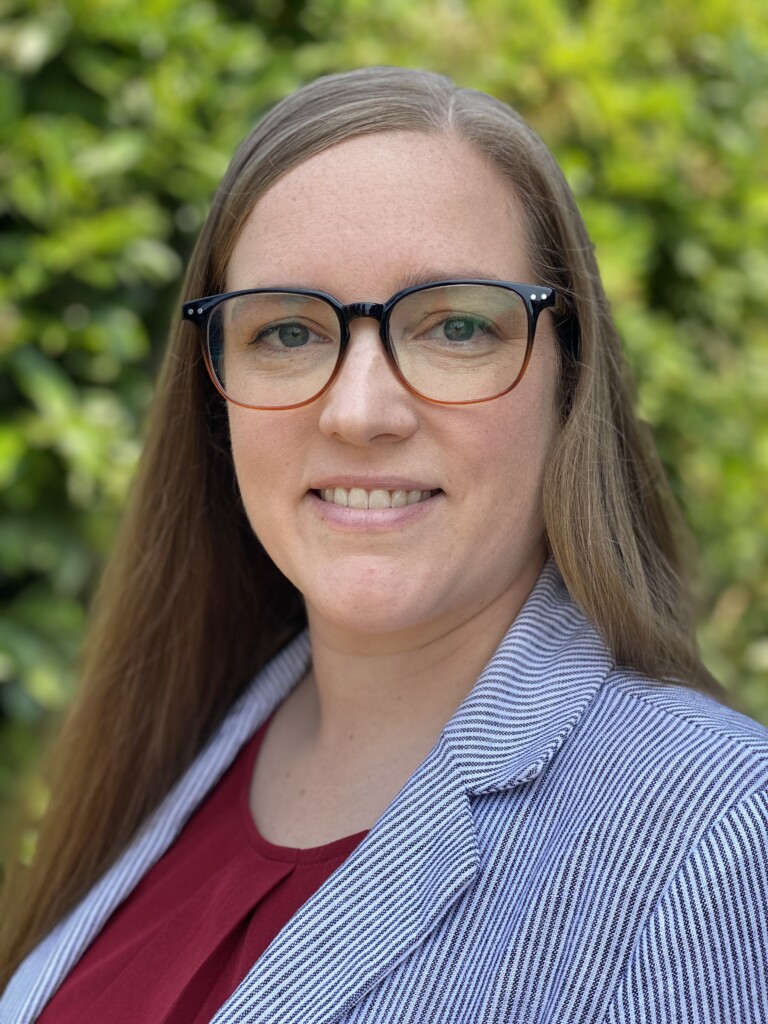Page 20 • (775 results in 0.034 seconds)
-
PLU alumna Yesenia Arellano ’13 was recently honored by the City of Tacoma during National Hispanic Heritage Month for her work as a mental health counselor providing bilingual therapy to diverse community members and an immigrant clientele. Yesenia spoke with PLU Assistant Director of Communications…
Craker about her work, her career and education path, and her commitment to community and mental health services. Yesenia majored in psychology at PLU and during her time as a student was involved with Hawaii Club, Latinos Unidos, Hip Hop 101 and Psychology Club. Read Previous PLU Nursing Students Honored in White Coat Blessing of the Hands Ceremony Read Next PLU’s MediaLab Wins 2021 College Emmy for Documentary COMMENTS*Note: All comments are moderated If the comments don't appear for you, you might
-

Associate Professor of Kinesiology | Gender, Sexuality, and Race Studies | mannmf@plu.edu | 253-535-7743 | Mallory initially joined the Kinesiology department on a 1.5 year appointment as a Visiting Instructor in January of 2014.
. in American Culture Studies at Bowling Green State University and has continued to serve our department as a sabbatical and retirement replacement. Dr. Mann earned her M.S. in Sport Studies (Sport Behavior and Performance) from Miami University of Ohio and her B.A. in Physical Education (w/ teaching certification and a minor in Sport Psychology) from Pacific Lutheran University where she graduated Cum Laude and was also recognized as WAHPERD Major of the Year. Dr. Mann’s academic background is in
-

Department Chair of Kinesiology | Department of Kinesiology | mannmf@plu.edu | 253-535-7743 | Mallory initially joined the Kinesiology department on a 1.5 year appointment as a Visiting Instructor in January of 2014.
. in American Culture Studies at Bowling Green State University and has continued to serve our department as a sabbatical and retirement replacement. Dr. Mann earned her M.S. in Sport Studies (Sport Behavior and Performance) from Miami University of Ohio and her B.A. in Physical Education (w/ teaching certification and a minor in Sport Psychology) from Pacific Lutheran University where she graduated Cum Laude and was also recognized as WAHPERD Major of the Year. Dr. Mann’s academic background is in
-

Clinic Coordinator and Health Navigator | Military Affiliated Students | splintdk@plu.edu | 253-535-7337 | Doreen joined PLU and the Health Center in 2003.
Memberships/Organizations Diabetic Association of America Biography Doreen joined PLU and the Health Center in 2003. She likes to camp, travel with her husband of 28+ years, read, work in her yard and garden, walk her dog Lucy, and exercise. She loves spending time with her daughter (who is in the Education department at Central University), her son (who graduated from PLU with a Psychology major), her daughter-in-law (who graduated from Western University, also with a Psychology major), as well as her
-

Clinic Coordinator, Health Services | Wellbeing Services and Resources | splintdk@plu.edu | 253-535-7337 | Doreen joined PLU and the Health Center in 2003. She likes to camp, travel with her husband of 28+ years, read, work in her yard and garden, walk her dog Lucy, and exercise. She loves spending time with her daughter (who is in the Education department at Central University), her son (who graduated from PLU with a Psychology major), her daughter-in-law (who graduated from Western University, also with a Psychology major), as well as her extended family – who all live in this area. Professional 2003 to present: PLU Student Health Center Family Practice Office Manager / Medical Assistant for 20 years Ophthalmology Assistant for 5 years .
and the Health Center in 2003. She likes to camp, travel with her husband of 28+ years, read, work in her yard and garden, walk her dog Lucy, and exercise. She loves spending time with her daughter (who is in the Education department at Central University), her son (who graduated from PLU with a Psychology major), her daughter-in-law (who graduated from Western University, also with a Psychology major), as well as her extended family – who all live in this area. Professional 2003 to present: PLU
-

Matt Leslie is pursuing the MSK degree in hopes of becoming a mental performance consultant. He shares about his passion and what he is most excited to learn in the MSK program. What is one fun fact about yourself? In addition to beginning graduate school…
School in Seattle, WA. This is my first varsity head coaching position and I couldn’t be more excited! What inspired you to join the MSK program at PLU? I have a passion for sport and physical activity that has greatly evolved in scope and practice over the past decade. Nothing has been more impactful on my athletic and professional journeys than my undergraduate studies in exercise and sport psychology, a minor I received at PLU (Class of 2013). My time at PLU launched me on a mission-driven path
-

Clinical Instructor of Nursing | School of Nursing | rsmall@plu.edu
Randi Small Clinical Instructor of Nursing Email: rsmall@plu.edu Professional Education MSN, Nursing , Pacific Lutheran University BA, Psychology, Saint Martins University
Contact Information -

By Zach Powers PLU Marketing & Communications TACOMA, Wash. (Dec. 21, 2014)—All over the world, Pacific Lutheran University alumni are serving in a wide variety of roles in hospitals, clinics, research centers and public-health agencies, sharing a steadfast commitment of delivering world-class medical care, treatment and…
. Brianne Burnett, Clinical Case Manager, Mental Health Center of Denver Graduation Year: 2011 Degree: B.A. Psychology Hometown: Mount Vernon, Wash. Current Residence: Denver, Colo. Can you share the overview of what your work as a Clinical Case Manager entails? I work one-on-one with approximately 30 individuals who I see in my office at a mental-health center, in their homes and in the community. I’m on a unique team that services adults with severe and persistent mental-health illnesses as well as a
-
The professional programs in the Department of Kinesiology prepare prospective leaders for successful careers in physical education, exercise science, health and fitness promotion, pre-physical
Bachelor of Science Degree in Kinesiology (B.S.K.) which offers two different pre-professional concentrations: exercise science and pre-physical therapy. Students completing these degrees often go on for further graduate study in physical therapy, sport psychology, athletic training, exercise science, recreation, public health etc., or enter into professions such as teaching, personal training, promotions and management, youth programming, coaching and other areas and do so in diverse settings such as
-

Student Success Advisor | Center for Student Success | sapariciozambrano@plu.edu
Stephanie Aparicio Zambrano Student Success Advisor She/Her/Hers Email: sapariciozambrano@plu.edu Office Location:Mortvedt Library - Room 125 Professional Education Bachelor of Arts, Psychology, Pacific Lutheran University, 2023
Contact Information
Do you have any feedback for us? If so, feel free to use our Feedback Form.


